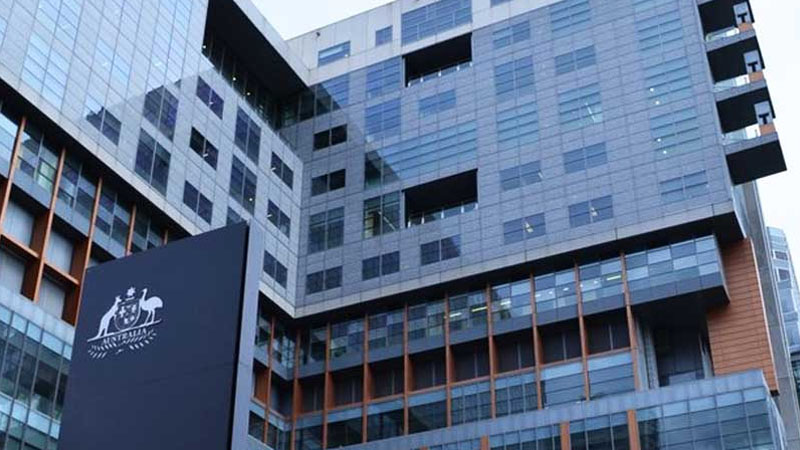Court makes determination in bankruptcy case involving SMSF
The Federal Circuit and Family Court has handed down a decision in a bankruptcy case that examined whether contributions made to an SMSF and the purchase of a property were made for the purpose of defeating creditors.
This case involved an SMSF called the Andrew Superannuation Fund and a former trustee of the fund, Tien Dung Do. The applicant in the case was one of the two joint trustees in the bankruptcy of Mr Do.
Background
Do Construction was the trustee of the Andrew Superannuation fund. Prior to that, Mr Do was the trustee of the fund.
In 2004, a dental practice called Gungahlin Dental was established, which was operated by Mr Do’s former wife, Thu Van Trinh.
In June 2004, Gungahlin Dental entered into a commercial lease with Goongarline Properties. The lease was wholly in writing, with Mr Do guaranteeing the lease. The lease was entered into for a period of 10 years, commencing 1 August 2004 and ending 31 July 2014.
Around 2010, Gungahlin Dental ceased trading from its premises.
From around 23 March 2013 to 5 July 2013, Goongarline issued correspondence to Mr Do regarding breaches of the lease by Gungahlin Dental.
In August 2014, Mr Do issued an email to the solicitors for Goongarline stating that he did not have any income and was currently living on debts.
Goongarline commenced proceedings in the Magistrates Court of the ACT against Mr Do in 2014 with respect to breaches of the lease.
The following year, an order was entered in the court for Mr Do to pay the sum of $50,000 to Goongarline with respect to the breaches of the lease.
In May 2016, Goongarline served a bankruptcy notice on Mr Do, and shortly after, Goongarline filed a creditor’s petition in Federal Circuit Court.
Mr Do was declared bankrupt in September 2016. On 30 September 2016, the applicants were appointed trustees of the bankrupt estate of Tien Dung Do, also known as Tein Dung Do, in the Federal Circuit Court of Australia.
On 8 August 2018, Ms Sijabat, one of the joint trustees of the bankrupt estate, wrote to Mr Do alleging that the amount of $463,155.17 had been transferred into the ASF for the purpose of defeating creditors, pursuant to s.128B of the Bankruptcy Act.
The applicant filed a statement of claim in January this year which sought to recoup the payment of $463,155.17 that was made to ASF in contributions.
Ms Sijabat also contended in the statement of claim that the purchase of a property in January 2010 should be impugned because, as of the date of their appointment as trustees of the bankrupt’s estate on 30 September 2016, this property vested in them.
Due to a lack of information and documents from Mr Do, Ms Sijabat stated that she was unable to conclusively ascertain whether the property was purchased by Mr Do in his own name, in accordance with the trust deed for the ASF, with Mr Do’s own personal funds, or the funds of ASF.
A conveyancing file from the lawyers who acted on the purchase of the property confirmed that Mr Do had purchased the property in his capacity as trustee of the ASF.
The respondent submitted that the main purpose of the contributions to the Andrew Superannuation Fund was to provide financial security for Mr Do’s future. Mr Do said he was advised by his accountant in 2009 that he should contribute as much money as he could into his superannuation fund. He also stated that the she advised him that he was able to make non-concessional contributions every three years. Mr Do followed that advice by making non-concessional contributions in the year ending 30 June 2010 and again, three years later, in the year ending 30 June 2013.
Outcome
In his decision, Judge W J Neville noted that there was an “alarming lack of documents” provided by Mr Do, with the exception of bank statements, and a concerning lack of knowledge and recollection of events and transactions “involving significant sums of money”.
“A further, complicating factor regarding the evidence was that no submission was made by the trustee regarding the paucity of evidence from Mr Do’s accountant, upon whose advice regarding contributions to the superannuation funds Mr Do purported to rely and act. This lack of, and lack of reference to, potentially corroborating or supporting evidence, was surprising, and unexplained,” he said.
Judge Neville granted the relief to the trustee of the bankrupt estate in relation to the contributions made to the fund for the financial years spanning 2012-13 to 2014-15.
Given the purchase of the property was confirmed to be in the name of the Andrew Superannuation Fund with funds taken from the ASF, the court found that Mr Do was not personally involved in the purchase. The judge, therefore, found that this part of the applicant’s claim should be dismissed.

Miranda Brownlee
Miranda Brownlee is the deputy editor of SMSF Adviser, which is the leading source of news, strategy and educational content for professionals working in the SMSF sector.
Since joining the team in 2014, Miranda has been responsible for breaking some of the biggest superannuation stories in Australia, and has reported extensively on technical strategy and legislative updates.
Miranda also has broad business and financial services reporting experience, having written for titles including Investor Daily, ifa and Accountants Daily.








